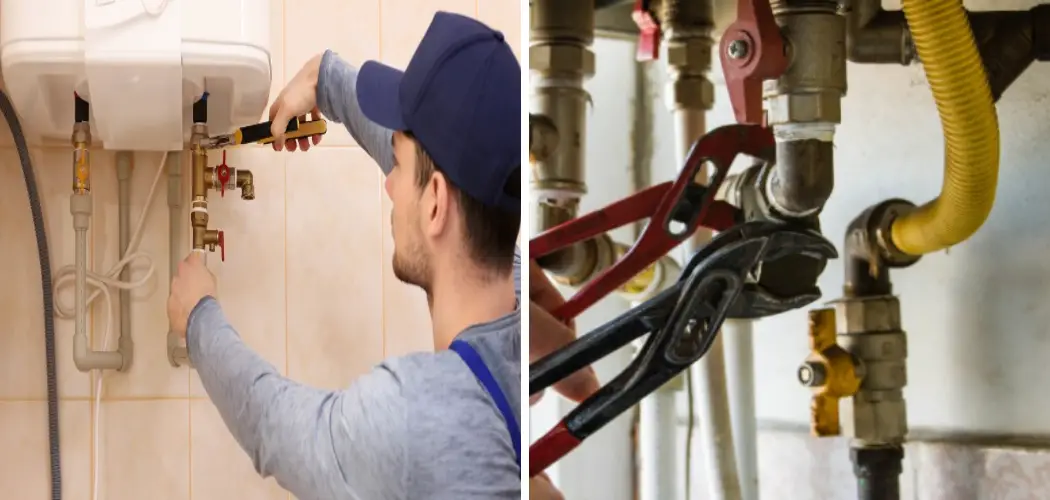Having a leaking boiler can be a real headache, but it’s not something that you have to put up with. There are several things you can do to fix a leaking boiler, but it’s important to identify the cause of the problem first. After all, the best way to fix a problem is to address its root cause. In this article, we’ll explore how to fix a leaking boiler, some of the common causes of a leaking boiler, and the steps you can take to fix the problem.
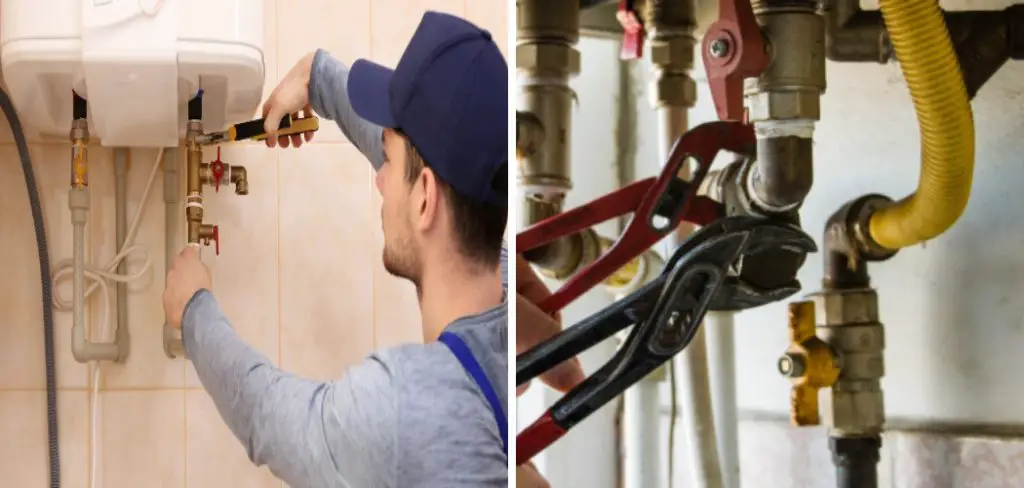
Can You Fix a Leaking Boiler?
A leaking boiler can spell trouble for any homeowner. The sound of dripping water and the sight of water pooling on the floor can be very distressing. Not only can a leaking boiler be a frustrating problem to deal with, but it can also cause serious damage if left unchecked. However, the question remains – can you fix a leaking boiler?
The answer is yes, but it’s important to understand that fixing a boiler requires specialized knowledge and tools. While there are some simple fixes that you can do yourself, more complex issues may require the help of a professional. With that in mind, let’s explore some of the common causes of a leaking boiler and what you can do to get it fixed ASAP.
Why Should You Fix a Leaking Boiler?
If you own a home with a boiler system, it’s important to take care of it to keep your household safe and comfortable. One issue that can arise is a leaking boiler, which can cause a multitude of problems if not fixed promptly. A leaking boiler can reduce the efficiency of your heating system and lead to potential hazards such as carbon monoxide leaks or water damage to your home.
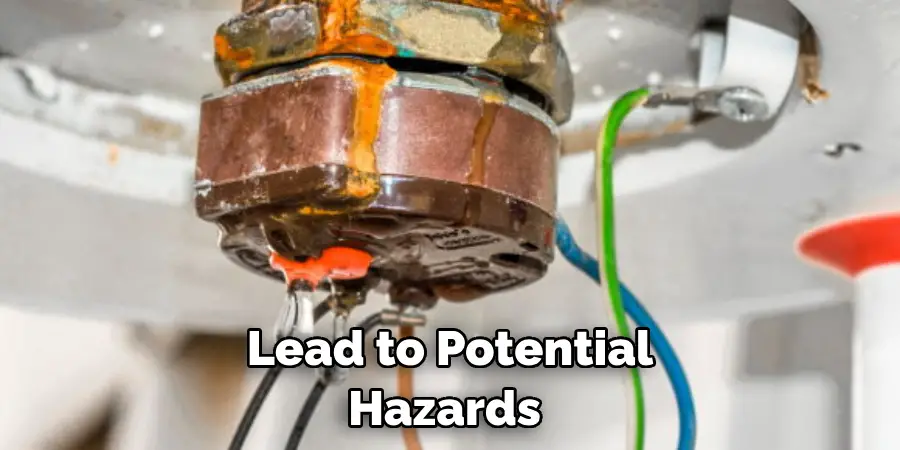
In addition, ignoring the problem could lead to costly repairs in the future. By addressing a leaking boiler right away, you’ll ensure that your home is running safely and smoothly and that your boiler is working at peak performance for years to come.
7 Tips to Follow on How to Fix a Leaking Boiler
1. Check the Pressure Valve
A common cause of leaking boilers is a faulty pressure valve. This valve is responsible for regulating the pressure inside the boiler, and if it becomes faulty, the pressure can build up to unsafe levels, causing the boiler to leak. If your boiler is leaking, the first thing to do is to check the pressure gauge and ensure it’s within the recommended range. If it’s too high, you should bleed some of the pressure off the system or replace the pressure valve if it’s faulty.
2. Check the Pipes and Connections
Sometimes, the cause of a boiler leak is as simple as a loose connection or a cracked pipe. You should inspect all the pipes and connections regularly to ensure they’re correctly installed and in good condition. If you notice any cracks or leaks, replace them immediately with high-grade pipes and fittings.
3. Check the Boiler Pump
The pump is responsible for circulating hot water around your heating system. If faulty or worn out, it can result in a leaky boiler. You can inspect the pump by checking the pump case for any signs of cracks or leaks. You should also listen for any unusual noises coming from the pump, which can also be a sign of a fault. You should replace the pump immediately to prevent further damage if it is faulty.
4. Check the Boiler Seal
The boiler seal is responsible for sealing the combustion chamber and preventing water from leaking out. If the seal becomes worn out or damaged, it can result in water leaks. You can inspect the seal by checking the combustion chamber for any signs of moisture or water leaks. You should replace the seal immediately if you notice any leaks or moisture. It’s essential to use high-quality seals specifically designed for your boiler model.
5. Check the Expansion Tank
The expansion tank is responsible for regulating the pressure inside the boiler. If it becomes faulty, it can cause the pressure to build up and result in a leaky boiler. You should inspect the expansion tank regularly and ensure it’s not overfilled. If it is overfilled, you can release some of the excess water through the pressure relief valve. However, if the tank is faulty, replacing it with a new one is best.
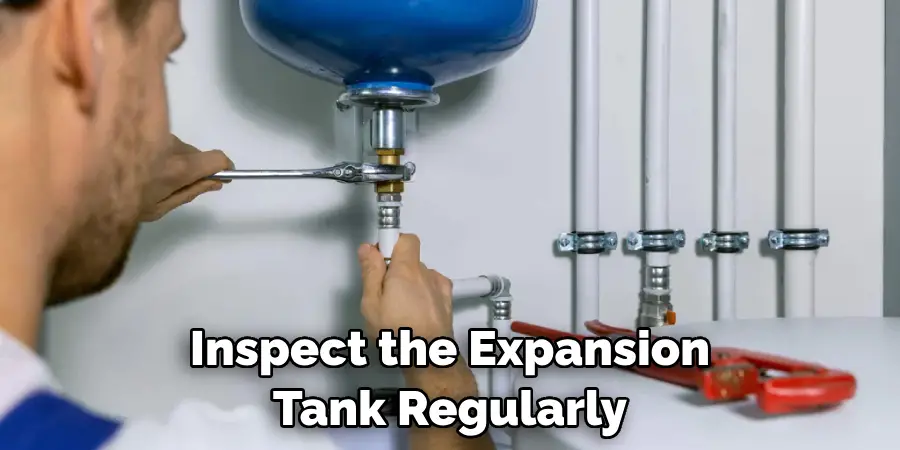
6. Check the Boiler Pressure Relief Valve
The boiler pressure relief valve releases excess pressure from the boiler to prevent it from exploding. If this valve becomes faulty, it can cause the boiler to leak. You should test this valve regularly by pulling on the pressure relief lever and ensuring that water is released without any issues. If you notice any leaks or if the valve doesn’t release water, it’s time to replace it.
7. Regular Boiler Maintenance
Lastly, regular boiler maintenance prevents leaks and other costly issues. You should schedule annual maintenance checks with a professional heating engineer to inspect and service your boiler. They can identify any potential problems and fix them before they turn into major leaks or breakdowns.
Following these tips, you can prevent and even fix a leaking boiler without calling a professional plumber. However, if the leak persists or you’re not confident in your DIY skills, it’s best to seek help from a qualified heating engineer to avoid causing further damage to your boiler. Remember, proper maintenance and regular checks can go a long way in keeping your boiler running smoothly and efficiently. So, follow these tips and give your boiler the care it needs.
5 Considerations Things When You Need to Fix a Leaking Boiler
1. Type of Boiler
The first thing to consider when fixing a leaking boiler is the type of boiler you have. There are different types of boilers, including conventional, system, and combi boilers, and each may require different methods for fixing a leak. It is important to know your boiler type before attempting any repairs.
2. Location of Leak
The leak’s location is also an important consideration when fixing a leaking boiler. A leak in the pipes or valves may be easier to fix than in the boiler unit. It is important to locate the source of the leak before beginning any repairs.
3. Severity of Leak
The severity of the leak will also impact how it should be fixed. A small drip may only require a simple repair, while a larger or more serious leak may require replacement parts or professional assistance. Assessing the severity of the leak will help determine the best course of action.
4. Safety Precautions
Safety should always be a top priority when dealing with a leaking boiler. Boilers use high pressure and can pose potential hazards if not handled properly. Ensure that all power and water supply to the boiler is turned off before attempting any repairs, and wear protective gear such as gloves and eye protection.
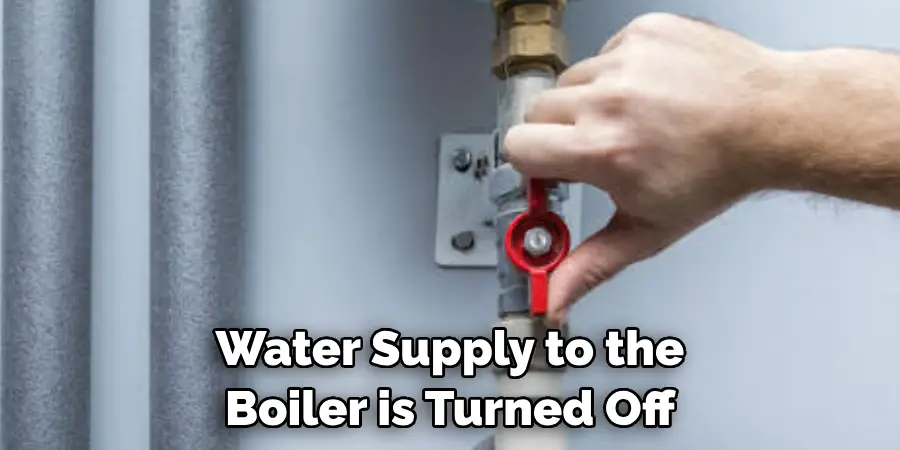
5. DIY vs. Professional Help
Finally, it is important to consider whether you have the necessary skills and knowledge to fix the leaking boiler or seek professional help. While homeowners can fix some minor leaks, more complex issues may require specialized tools and expertise that only a professional can provide.
Benefits of Fixing a Leaking Boiler
A leaking boiler might seem like a minor inconvenience, but the truth is that it can cause significant problems and even pose a safety hazard to your home or office. Not only can a leaking boiler waste water and increase your water bill, but it can also damage the surrounding area and lead to costly repairs.
Fixing a leaking boiler not only prevents these potential issues from occurring, but it can also improve the efficiency and lifespan of your boiler, saving you money in the long run. By addressing the problem sooner rather than later, you can ensure that your home or office stays safe and comfortable and that your boiler is functioning at its best.
Some Common Mistakes People Make When Trying to Fix a Leaking Boiler
Fixing a leaking boiler can be a daunting task for homeowners. Unfortunately, in the midst of the chaos, people make common mistakes when repairing their boilers. One of the most notable ones is not shutting off the electricity or gas that powers the appliance. This mistake can lead to electrical shocks or gas leaks, resulting in explosive fires. Another common error is failing to check the water pressure gauge.
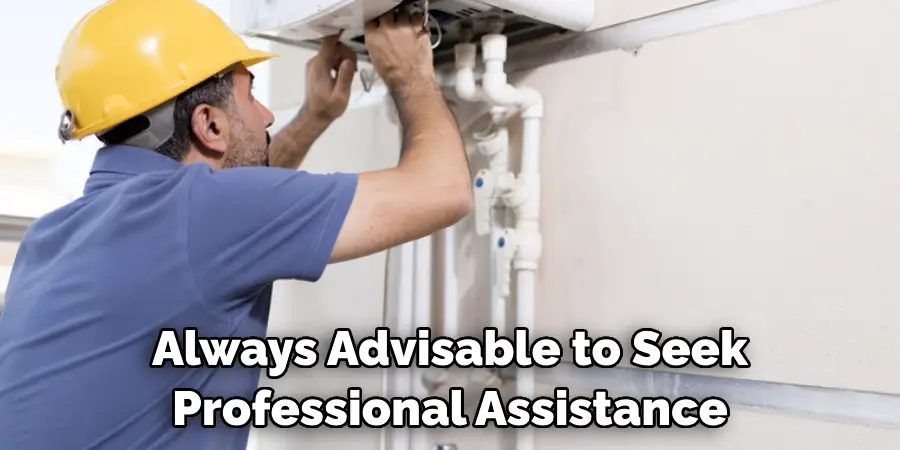
Low or high pressure can cause the boiler to leak. People often try to fix complicated parts without the proper tools or knowledge. Not using the appropriate tools can cause further damage and lead to costly repairs. It is always advisable to seek professional assistance when the issue seems too complex. By avoiding these common mistakes, homeowners can safely repair their boilers and keep their homes warm and comfortable during the cold winter.
Conclusion
In conclusion, a leaking boiler is a problem that you shouldn’t ignore. You should inspect your boiler regularly and address any issues as soon as they arise. Checking the pressure valve, pipes, connections, pump, and boiler seal are some steps to fix a leaking boiler.
Remember, fixing a complicated boiler issue without the right expertise can result in more damage. In case of complex boiler issues, it’s essential to call a professional boiler repair company to ensure your boiler operates optimally. Thanks for reading our post about how to fix a leaking boiler.

